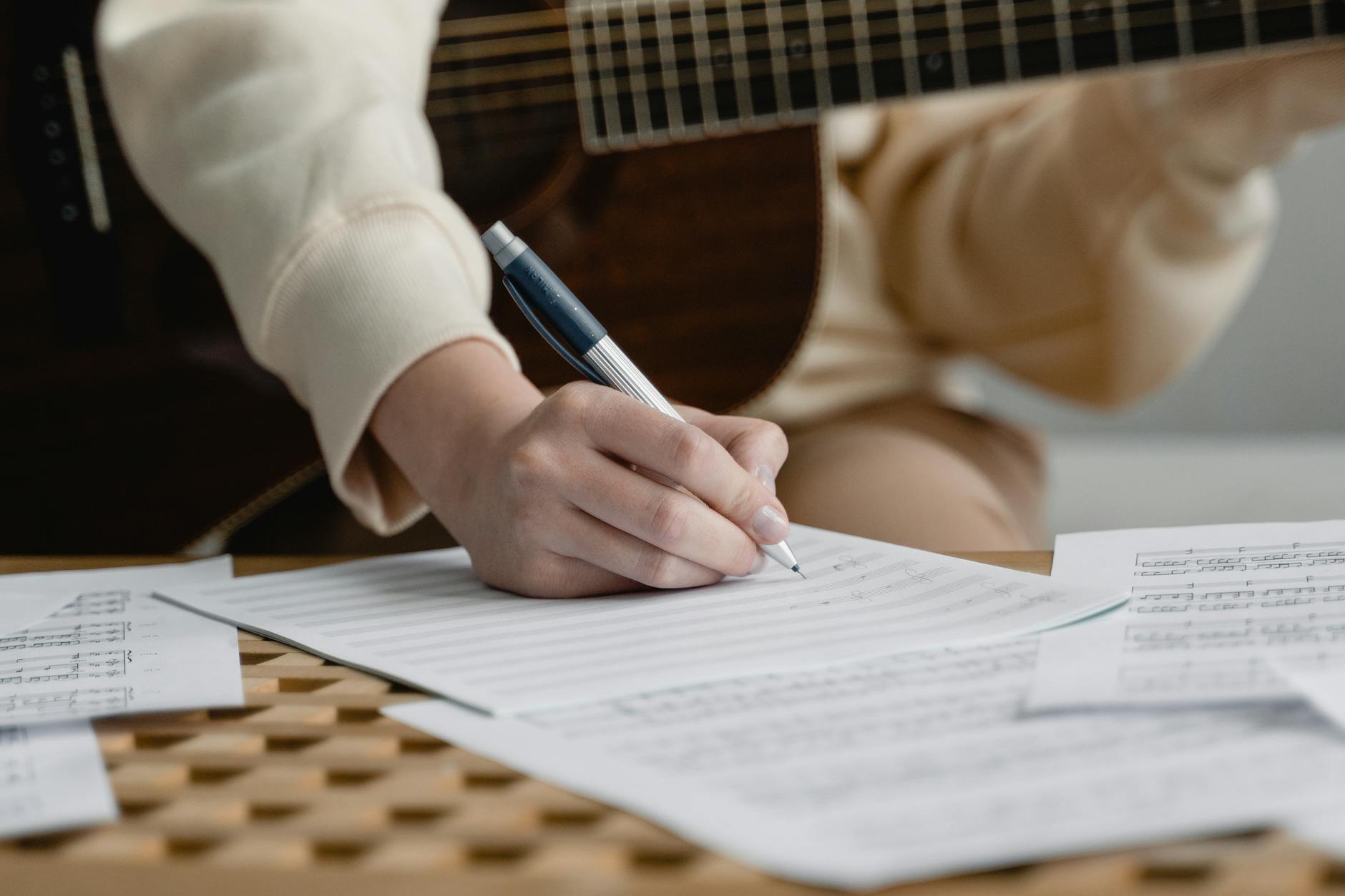Want to elevate your guitar compositions without feeling overwhelmed? Mastering innovative techniques can transform your playing and songwriting approach. It’s all about stepping outside the traditional boundaries and allowing your creativity to flourish.
This journey will unveil methods that challenge conventional practices, enriching your musical landscape. From rhythmic experiments to unique tunings, explore how these techniques can ignite your songwriting and enhance innovation in your compositions.
The heartbeat of a song often resides in its rhythm. To truly master guitar composition, embracing unconventional rhythmic structures can lead to remarkable outcomes. Instead of conforming to the usual 4/4 time signature, why not experiment with 5/4 or even 7/8? These time signatures can create an engaging sense of movement, adding an unexpected twist to your music.
Dare to incorporate polyrhythms, where two different rhythms coexist to produce a captivating overlay. As you play with various rhythms, you’ll discover new patterns that inspire fresh melodic ideas. Your audience will be intrigued, and your compositions will naturally become more engaging, keeping listeners hooked from start to finish.
Exploring alternate tunings opens up a plethora of opportunities for unique sounds and chord voicings. Standard tuning is just one of many routes—the world of guitar is filled with possibilities. Tunings such as open D or C6 can offer fresh perspectives and immersive sonic textures that spark your creativity.
These unique tunings not only introduce different chord structures but also inspire new melodies that might not emerge in standard tuning. You may stumble upon unexpected chord progressions that feel entirely new, leading your compositions to unexpected yet delightful places. Experimenting with various tunings can be a game-changer in how you compose and play.
Using modal interchange can infuse your music with vibrant colors and emotional depth. This technique involves borrowing chords from different scales or modes, introducing surprising harmonic shifts within your compositions. By blending major and minor elements, you can craft unique progressions that evoke a wider range of feelings.
Consider utilizing the Dorian or Mixolydian modes when crafting your progressions. These modes offer exotic sounds that can refresh your musical palette. This exploration enables not just an expansion of harmonic ideas but also a deeper connection with the emotions your songs convey, transforming each piece into a rich auditory experience.
Improvisation can serve as a wellspring of inspiration for composition. It allows for a free-flowing expression of thoughts and feels, often leading to the discovery of melodic motifs that feel authentic and original. Set aside time during your practice sessions to improvise without any specific goals—just let the music guide you.
Recording your improvisational sessions can be invaluable. Listening back, you might find gems that can evolve into full compositions. Plus, it nurtures a genuine approach to composition that feels personal and resonates deeply with listeners. Embracing improvisation creates a captivating dynamic that can redefine your musical identity as a guitarist and composer.
As you explore these innovative techniques, it’s essential to keep track of your growth as a musician. Regularly recording your sessions can help you identify patterns, strengths, and areas for improvement in your compositions. Also, keep a journal to reflect on your experiences; what worked, what didn’t, and how you can adapt moving forward.
This process not only breeds accountability but also fuels motivation. Document your musical journey, and celebrate the milestones along the way. Recognizing your progress fosters a sense of achievement that propels you further in your pursuit of mastering innovative guitar composition.
Q: How do I get started with alternate tunings?
A: Begin by experimenting with one alternate tuning at a time. Analyze familiar songs or exercises using these tunings to understand how they change your play.
Q: What tools can assist with improvisation?
A: Use a looper pedal to layer your ideas, or jam along with backing tracks in various styles, which can inspire unique improvisations.
Q: Should I focus on technique or composition first?
A: Striking a balance is key. Develop your technical skills while regularly composing to find synergy between the two and enhance your overall musicianship.
Now that you’ve unveiled several innovative guitar composition techniques, it’s time to dive deep and begin implementing them. Look for ways to incorporate unconventional rhythms in your playing or explore a new tuning this week. Consistent practice and exploration will provide endless possibilities for creativity, and soon, your compositions will reflect a unique musical identity that differentiates you in the vast sea of guitarists.
Image Credit: Pexels
